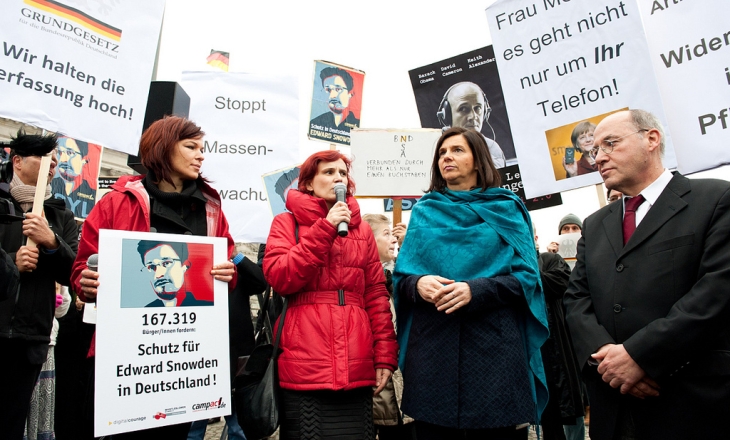No, social media platforms like Facebook and Twitter are not fronts for free expression when it comes to controversial issues. Certainly not in the United States. In fact, social media has been discouraging free expression, rather than encouraging it, when the subjects at hand are controversial, even offline.
The conclusions are from a study conducted by the Pew Research Center, in association with Rugers University, which looked at Edward Snowden’s 2013 revelations of widespread government surveillance of Americans’ phone and email records. Americans had been divided over whether the National Security Agency (NSA) contractor’s leaks about surveillance programme were justified and whether the surveillance policy itself was a good or bad idea.
The study found that 86 per cent of Americans were willing to have an in-person conversation about the issues surrounding the NSA's surveillance programme, but just 42 per cent of Facebook and Twitter users were willing to post about it on those platforms. Let's not do it on social media, please.
In the Snowden case, social media did not provide new forums for those who might otherwise remain silent to express their opinions and debate issues. If that was not all, if people thought their friends and followers in social media disagreed with them, they were less likely to say they would state their views online and in other contexts, such as gatherings of friends, neighbours, or co-workers.
"This suggests a spiral of silence might spill over from online contexts to in-person contexts, though our data cannot definitively demonstrate this causation. It also might mean that the broad awareness social media users have of their networks might make them more hesitant to speak up because they are especially tuned into the opinions of those around them," the researchers noted.
Here's a rundown of the major findings:
- People were less willing to discuss the Snowden-NSA story in social media than they were in person. 86% of Americans were willing to have an in-person conversation about the surveillance programme, but just 42% of Facebook and Twitter users were willing to post about it on those platforms.
- Social media did not provide an alternative discussion platform for those who were not willing to discuss the Snowden-NSA story. Of the 14% of Americans unwilling to discuss the Snowden-NSA story in person with others, only 0.3% were willing to post about it on social media.
- In both personal settings and online settings, people were more willing to share their views if they thought their audience agreed with them. For instance, at work, those who felt their coworkers agreed with their opinion were about three times more likely to say they would join a workplace conversation about the Snowden-NSA situation.
- Previous ‘spiral of silence’ findings as to people’s willingness to speak up in various settings also apply to social media users. Those who use Facebook were more willing to share their views if they thought their followers agreed with them. If a person felt that people in their Facebook network agreed with their opinion about the Snowden-NSA issue, they were about twice as likely to join a discussion on Facebook about this issue.
- Facebook and Twitter users were also less likely to share their opinions in many face-to-face settings. The average Facebook user was half as likely as other people to say they would be willing to voice their opinion with friends at a restaurant. If they felt that their online Facebook network agreed with their views on this issue, their willingness to speak out in a face-to-face discussion with friends was higher, although they were still only 0.74 times as likely to voice their opinion as other people.
And here's a clincher: people’s use of social media did little to increase their access to information about the Snowden-NSA revelations.
- 58% of all adults got at least some information on the topic of Snowden-NSA from TV or radio.
- 34% got at least some information from online sources other than social media.
- 31% got at least some information from friends and family.
- 19% got at least some information from a print newspaper.
- 15% got at least some information while on Facebook.
- 3% got at least some information from Twitter.










